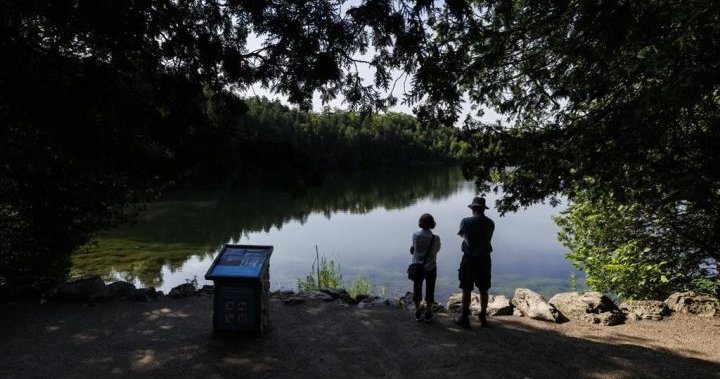
Small Ontario lake nominated as home of ‘Golden Spike’ marking Anthropocene epoch
Global News
A team of geologists has concluded, after a studying sites around the globe, that a tiny, deep lake in southern Ontario should mark the birth of the modern world.
A team of geologists has concluded, after a studying sites around the globe, that a tiny, deep lake in southern Ontario should mark the birth of the modern world.
A few layers of sediment from around 1950 at the bottom of Crawford Lake, they say, show more clearly than anywhere else how human activities have changed the planet’s functioning to the extent that a new geological epoch should be declared: the Anthropocene, or the age of people.
“It’s a bit sobering,” said Francine McCarthy, a Brock University geologist who was on the research team for the Anthropocene Working Group of the International Union of Geological Sciences.
“Within that short span of time, the system flipped and can’t go back to the way it used to be.”
Her group says the lake along the Niagara Escarpment should be considered the location for the so-called “Golden Spike” marking the start of the Anthropocene.
The recommendation was announced Tuesday at the International Congress on Stratigraphy in Lille, France.
Geologists are to debate the issue, including whether the Anthropocene should be declared at all, in the fall. The matter is to come to a final vote at the International Union of Geological Sciences in August 2024.
That will bring to a close a debate geologists have been having since 2009: have humans altered the planet’s functioning profoundly enough to change its geology, and if so, should a new geological epoch be declared?











